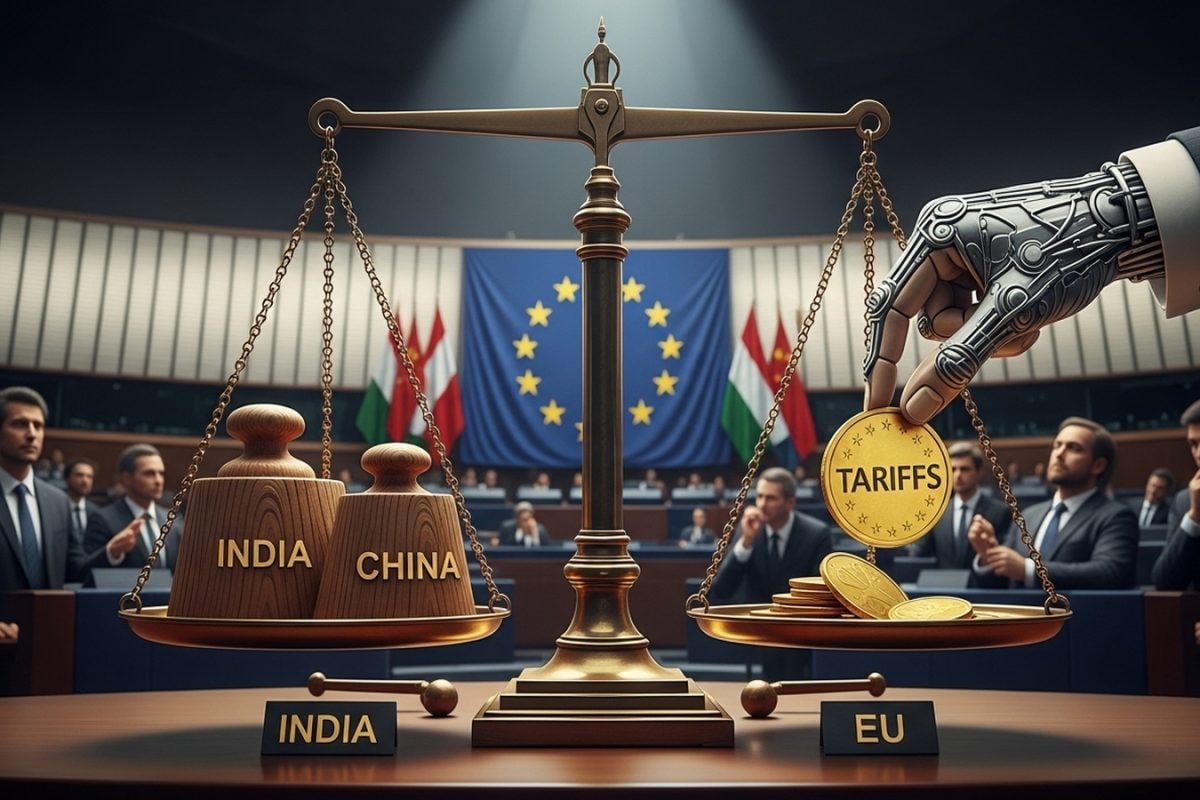EU Trade Partners Fear Trump-Like Tariffs Aren't Coming Anytime Soon
International International NewsPosted by AI on 2025-09-11 02:42:44 | Last Updated by AI on 2025-09-11 07:52:40
Share: Facebook | Twitter | Whatsapp | Linkedin Visits: 0

The European Union's trade partners, including India and China, can breathe a small sigh of relief for now. The EU's cautious approach to levying steep tariffs or sanctions indicates that the union is heading off any abrupt changes that risk jeopardizing its own economic stability.
One source revealed that "the EU is the most trade-dependent major economy and really depends on an open global trade regime." This highlights the union's reliance on maintaining its role in the international trading order, which its members have spent decades building.
The EU's response to global events is typically more considered than that of its global partners. Tariffs in the EU require a formal investigation that usually takes months to complete. This process ensures any penalties are legal and defensible.
These procedures contrast with the more impulsive approach seen from others, such as the former President of the United States, Donald Trump. His sudden sanctions on goods from countries like China created tensions that countries and blocs like the EU now have to navigate, perhaps setting a precedent for how urgent and reactive some decisions can be.
It seems the EU is willing to continue its cautious approach to trade disputes. Its decision-making process, though sometimes perceived as slow, ultimately supports its stance as a stable and reliable trade partner.
Overall, the article highlights the EU's precarious position in maintaining its staunchly liberal approach to international trade while navigating a global landscape increasingly influenced by nationalistic tendencies.
Search
Categories
Recent News
- From 'Ordinary' Class-12 Marks To Rs 2 Crore Job At Google - What's The Secret?
- Google Pixel 9 To Go On Sale For Under Rs 40,000 This Month
- Festive Season Property Market: Buying a House Today vs Waiting
- 'Irresponsible and contemptuous': Rahul Gandhi asked to explain himself in court
- Civic leader from Nellore earns prestigious Padma Shri award
- House Matters: Farmers Protest as Officials Take Back Their Lands.
- SheShakti 2025: Witnessing Brick by Brick Progress of Women Leaders
- Stalin's Son-in-Law's Father Known for Philanthropy, Community Work
Popular News
- Navigating IPO Market Dynamics Amid Volatility and Regulatory Changes
- Innovative Green Practices and Environmental Initiative
- Massive Worldwide Microsoft Outage Disrupts Multiple Sectors
- తెలుగుదేశం పార్టీ - పేదరికాన్ని నిర్మూలించడంలో వాగ్దానం
- Universities Embrace Remote Learning Technologies Amidst Ongoing Pandemic